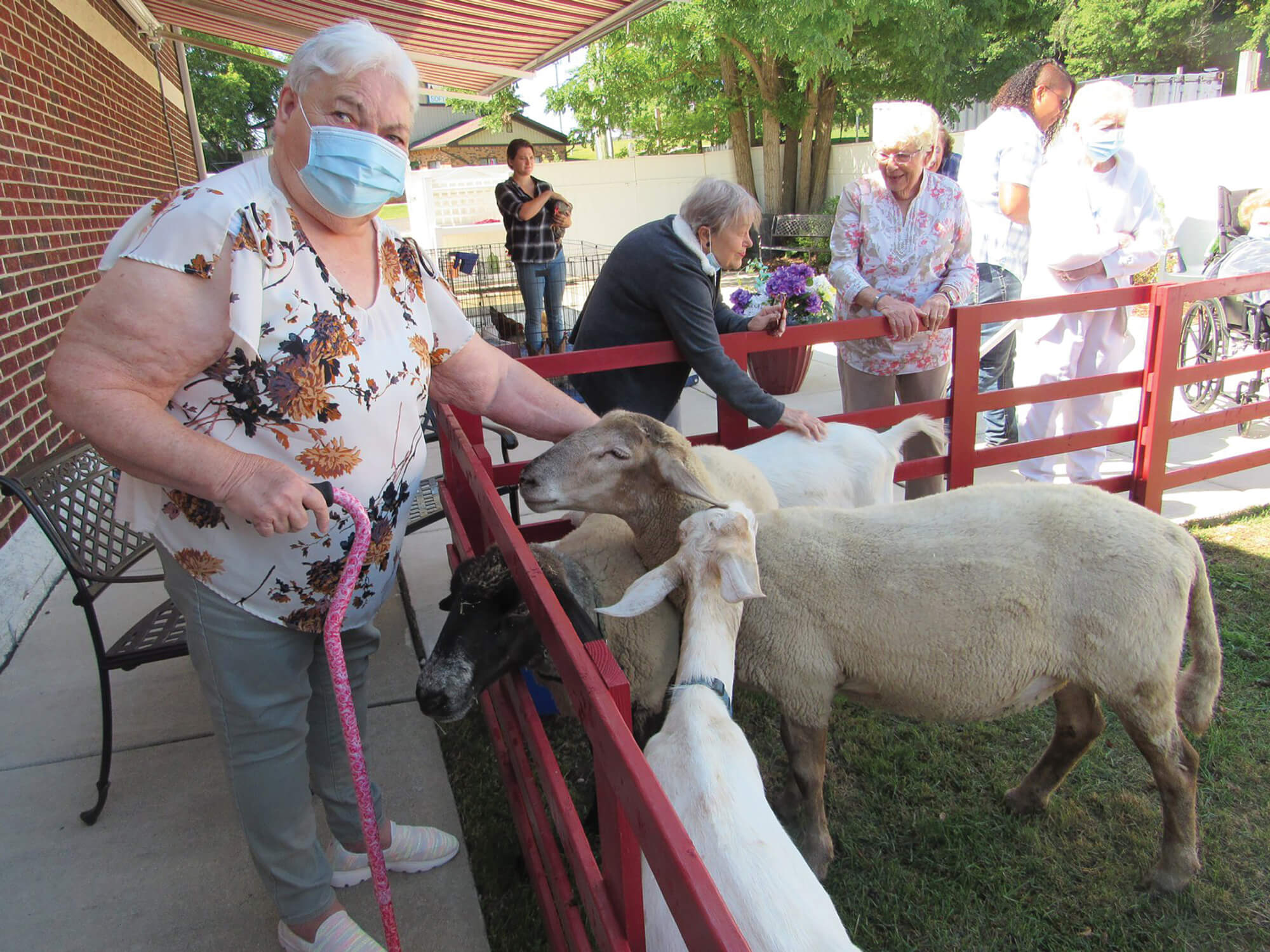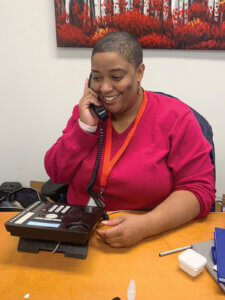
This story was originally published in our Spring 2022 REPORT Newsletter.
When older adults are lonely or can’t be cared for at home during the day, adult day programs can help. These programs can allow them to stay at home longer and socialize while getting the care they need. Day programs also give caregivers the rest they need to reduce stress and prevent burnout.

Melissa Draughn, director of Social Work, Hannan Center, helped launch a Telephone Reassurance program to combat the isolation of older adults during the pandemic.
For many, but particularly for older adults, isolation became a significant issue with the onset of COVID-19. According to a report released in late 2021 by the AARP Foundation and the United Health Foundation, the COVID-19 pandemic has spurred a rise in social isolation and loneliness, reaching epidemic proportions.
Two-thirds of U.S. adults report experiencing social isolation and more than half (66 percent) agree that the COVID-19 pandemic has caused their anxiety level to increase, yet many are not turning to anyone for help.
Key signs to identify if someone is at risk for social isolation are access to food, healthcare, transportation, and other vital resources.
Increasing engagement in social and community groups is a common intervention strategy; more frequent interaction can help reduce isolation and loneliness.
Working closely with organizations that support older adults and caregiver clients, the Community Foundation is providing funding for critical programs that were innovating in the way they serviced those in need.
The Hannan Center
Detroit’s Hannan Center, which is dedicated to supporting older adults through social services and creative wellness opportunities, launched a Telephone Reassurance program to combat isolation during the pandemic.
Funds from the Community Foundation allowed older adults and caregivers to select the number of times they wanted to be contacted weekly and they were matched with a Hannan Center team member.
These team members conducted assessments for social isolation, depression, anxiety, substance abuse, elder abuse, and physical well-being. Individual plans to support older adults and caregivers were developed and implemented.
“Be Our Guest Adult Day”
The Community Foundation also provided support to the Livingston County Catholic Charities “Be Our Guest Adult Day” program, which provides services for people suffering from dementia or other memory-related diseases.
During the first few months of the pandemic, they began weekly telephone well-check visits. They also provided a variety of ways to keep families engaged and connected, including mailing fun activities, music therapy videos, and making their Caregiver Support Group virtual.
Results of the program are strong with 90 percent of caregivers reporting a positive social change in loved ones after participating in the program.
Connections, companionship, and a sense of belonging are what we need as humans.
While older adult care can be difficult with its many demands, it is important to provide our elders and their caregivers with the resources to support their safety, health, and overall well-being.
